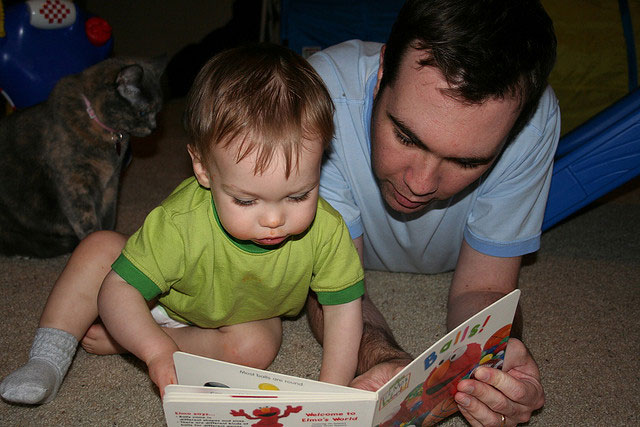In California’s Immigrant Families, Reading or Sharing Books with Children Less Common

A new Stanford study suggests that immigrant parents may not read to or share books with their young children as often as non-immigrant parents, prompting concerns about those children’s school readiness.
Hispanic or Asian immigrant families in California were less likely to read or look at picture books with their young children than native-born parents, regardless of income or educational status, Stanford University School of Medicine researchers found in the study, published in the journal Pediatrics. The researchers used California Health Interview Survey data from 2005, 2007 and 2009. Across ethnicities, 57.5% of parents in immigrant families reported daily book sharing or reading, compared with about 75.8% of native-born parents.
Researchers have long known that parents in low-income or limited-English households are less likely to read books with their children in early childhood. These children are more likely to enter school with language and pre-literacy skill delays compared to their peers.
The issue is particularly important in California, where about half of children live with one or more foreign-born parents and about 12% of children live in in linguistically-isolated households.
Kidsdata.org offers demographic indicators relating to children, immigration status and reading at the state, county and, in some cases, school district level:
Young Children Whose Parents Read Books With Them, by Frequency
Children Living with Foreign-Born Parents
Third Grade Students Scoring Proficient or Higher on English Language Arts CST
photo credit: John Mick via Flickr
Posted by kidsdata.org
This entry was posted on Wednesday, June 4th, 2014 at 12:05 pm. You can follow any responses to this entry through the RSS 2.0 feed. You can leave a response, or trackback from your own site.


